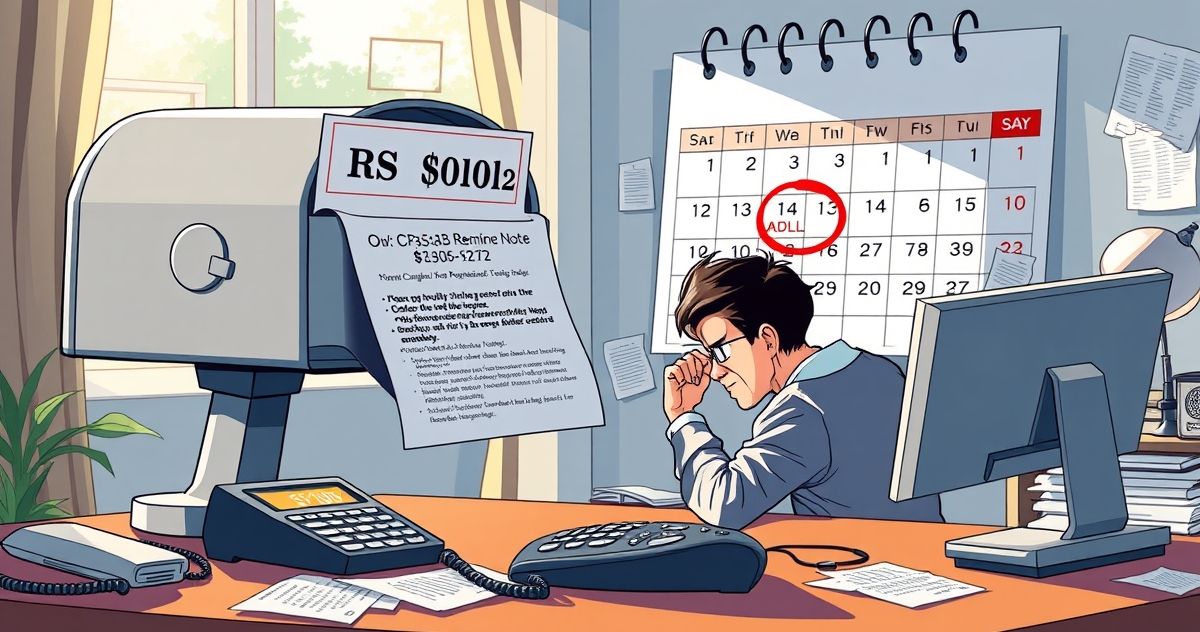Understanding the CP503AB Reminder
The CP503AB Reminder is a notice issued by the Internal Revenue Service (IRS) to inform taxpayers about overdue taxes. This crucial document serves as the second reminder in a series of notices, emphasizing the balance due and urging timely payment to avoid further penalties and interest.
What is the CP503AB Reminder and Its Primary Purpose?
The CP503AB Reminder plays a pivotal role in communicating to taxpayers that they have an outstanding tax liability that needs prompt attention. This notice is typically triggered when a taxpayer has not paid the amount due despite previous communications. Its primary purpose is to act as a formal notification of the taxpayer’s delinquent status and to encourage settlement of any outstanding debt without further escalation.
Key Features or Components of the CP503AB Reminder
The notice includes several critical components to ensure clarity and effective communication:
- Balance Information: Clearly states the total amount due, including any accrued interest or penalties.
- Due Date: Specifies the deadline by which the payment should be made to avoid additional charges.
- Payment Instructions: Provides detailed guidance on how to make the payment, including acceptable methods and where to send the payment.
- Consequences of Non-Compliance: Outlines the potential repercussions of failing to settle the debt, such as additional penalties, accrued interest, or enforcement actions.
- Contact Information: Includes IRS contact details for taxpayers who may have questions or require assistance regarding their notice.
Relevant Filing or Compliance Requirements
The CP503AB requires taxpayers to not only make the payment by the specified due date but also to ensure that any discrepancies in their tax records are rectified. This means taxpayers should:
- Review and Understand the Notice: Carefully check the notice details against their own records to confirm its accuracy.
- Gather Necessary Documentation: Should discrepancies arise, taxpayers need evidence such as receipts or financial statements to support their claims.
- Engage with IRS Effectively: If there are genuine issues or if the taxpayer cannot make the full payment immediately, it is crucial to contact the IRS proactively to request a resolution or a payment plan.
Penalties or Consequences for Non-Compliance
Failure to respond to the CP503AB Reminder can lead to significant penalties. The primary consequences include:
- Increased Interest and Penalties: Any outstanding amount continues to accrue interest, and the IRS may impose additional penalties for delayed payments.
- Enforcement Actions: The IRS has the authority to initiate further actions such as liens or levies on the taxpayer’s property, pay garnishments, or even legal proceedings to recover the overdue amount.
- Credit Impact: Such actions can have an adverse effect on the taxpayer’s credit rating, making future financial transactions more challenging.
Its Importance in Tax Resolution or General Financial Compliance
The CP503AB Reminder is significant for maintaining tax compliance and financial order. By highlighting overdue obligations, it serves as a critical juncture for taxpayers to avoid more severe financial consequences. This reminder helps taxpayers:
- Stay Informed: Provides an essential update on their financial obligations, allowing timely redressal.
- Prevent Further Penalties: Encourages immediate payment or resolution options, thereby reducing the risk of escalating financial penalties.
- Facilitate Financial Planning: Understanding the exact financial obligation allows individuals to plan better and manage their resources when addressing back taxes.
- Resolve Tax Issues: Acts as a starting point for resolving any deeper issues underlying the tax debt, such as errors in submission or disputes regarding the amount owed.
In conclusion, addressing a CP503AB Reminder promptly is crucial for taxpayers. Dealing efficiently with this notice helps avoid additional penalties and interest, and potentially more severe IRS enforcement actions. Engaging with the IRS, verifying the owed amount, and negotiating payment terms if necessary, are all critical steps for managing one’s financial compliance effectively.

